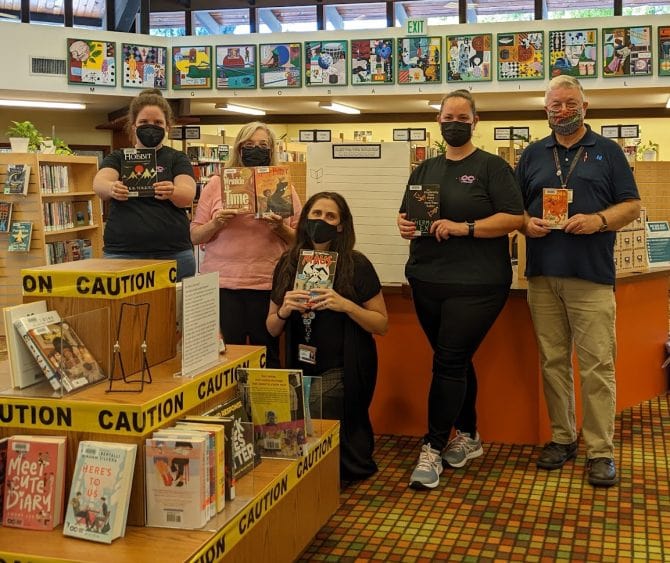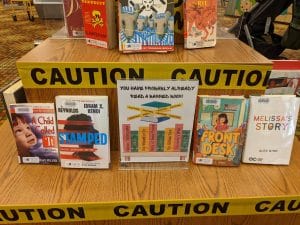In the past several years, the United States has seen an unprecedented surge in book bans. Why? If you look at the American Library Association's list of most challenged books, a theme emerges. Books that deal with the topics of anti-racism and LGBTQ+ issues are under fire. As a librarian and a parent, it's difficult for me to sum up exactly why book bans make me so angry.
As a parent, my heart breaks for kids who won't find books that speak to them. In many ways, we read books (especially as children) to discover who we are and what we believe. While simply having a book on shelves in the library isn't endorsing it (many library staff members have strong negative opinions about some of the books on our shelves!), banning a book does one troubling thing. While it won't prevent a person from being LGBTQ+ or anti-racist, it will foster a sense of shame in vulnerable youth. That kind of isolation can have devastating consequences.
As a librarian, I believe in the freedom to read--and that reading does not necessarily mean giving an idea a stamp of approval. When we hide topics from our community, it only serves to create a barrier to information. The third statement in the ALA Bill of Rights says that "libraries should challenge censorship in the fulfillment of their responsibility to provide information and enlightenment." Here, we try to build that sentiment into our mission statement and our core values.
AC Library's mission states "We Grow Learners" and "We Break Barriers." When it comes to censorship, there is no faster way to shut down both of those goals in an instant. When Maus was banned this past year in a Tennessee School District, the message was clear. Students were not to be exposed to the more violent nature of our history. While profanity was a listed concern, that would not explain it's removal from upper school libraries (where adult language is frequently used in books). Banning books like Maus and the Diary of Anne Frank only serves to erase cultures and history. Winston Churchill once said: “Those that fail to learn from history are doomed to repeat it.” As horrible as many aspects of our history are, we need to know about them to avoid such atrocities in the future. Censorship cuts readers off before they can learn. It creates the very barrier we seek to break.
As "Kind, Connected Humans," AC Library also states one very important core value: curiosity. To censor a book does more than make a value judgment. It shuts down the innate sense of curiosity that connects us to both the past and the future. One of the best things about books is that they enable us to have conversations and ask questions! While we may not agree with the lesson of a book, it helps us to define our own point of view by helping us decide what we stand for--or against. One of the most damaging things about the increase in book bans is that it censors our very identities as human beings. Books like "The Hate U Give," "Front Desk," and "New Kid" are challenged titles with one thing in common: the authors are speaking through characters to highlight their own experiences. Book challenges shut down these stories that are based on very real events. In doing so, they erase the life experiences of the people we share this world with.
Award-winning author Judy Blume said it best:
"[I]t's not just the books under fire now that worry me. It is the books that will never be written. The books that will never be read. And all due to the fear of censorship. As always, young readers will be the real losers."
This is exactly why we, at AC Library, want you to read banned books!
Please visit your local branch to see how your community is celebrating Banned Books Week.
- Take in a banned books storytime at San Lorenzo Library
- Pose for your "Wanted for Reading" mug shot at Centerville Library
- Make some Banned Books Week flair pins afternoons at Centerville Library
- Read a banned book from the list below!
Here are a few fantastic banned books for you to read when celebrating Banned Books Week 2022! Along with last year's top 5 most banned books (recorded by the American Library Association), please enjoy a list of other books that deserve a spot on your TBR ("to be read") pile.




Add a comment to: Why AC Library Wants You to Read Banned Books